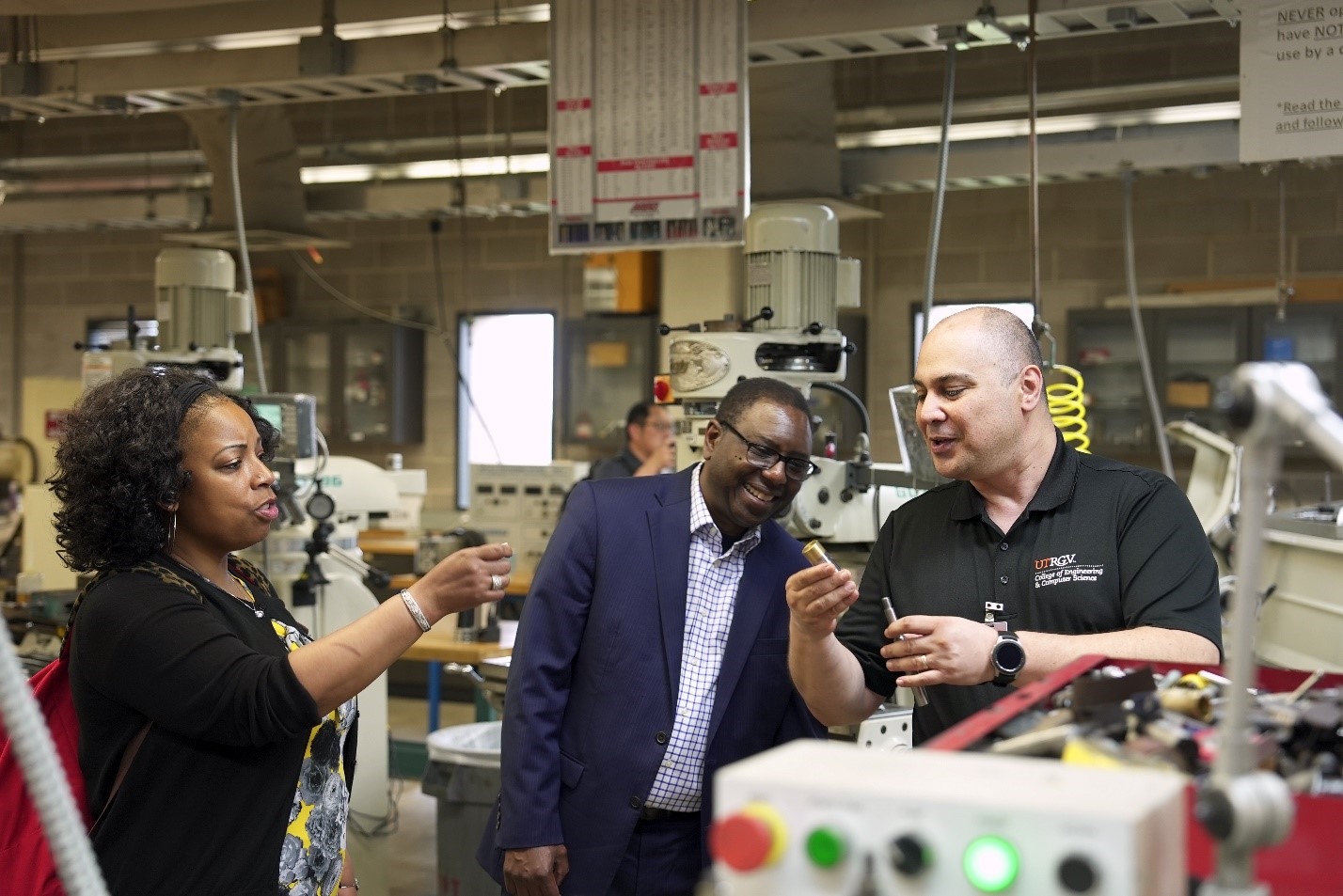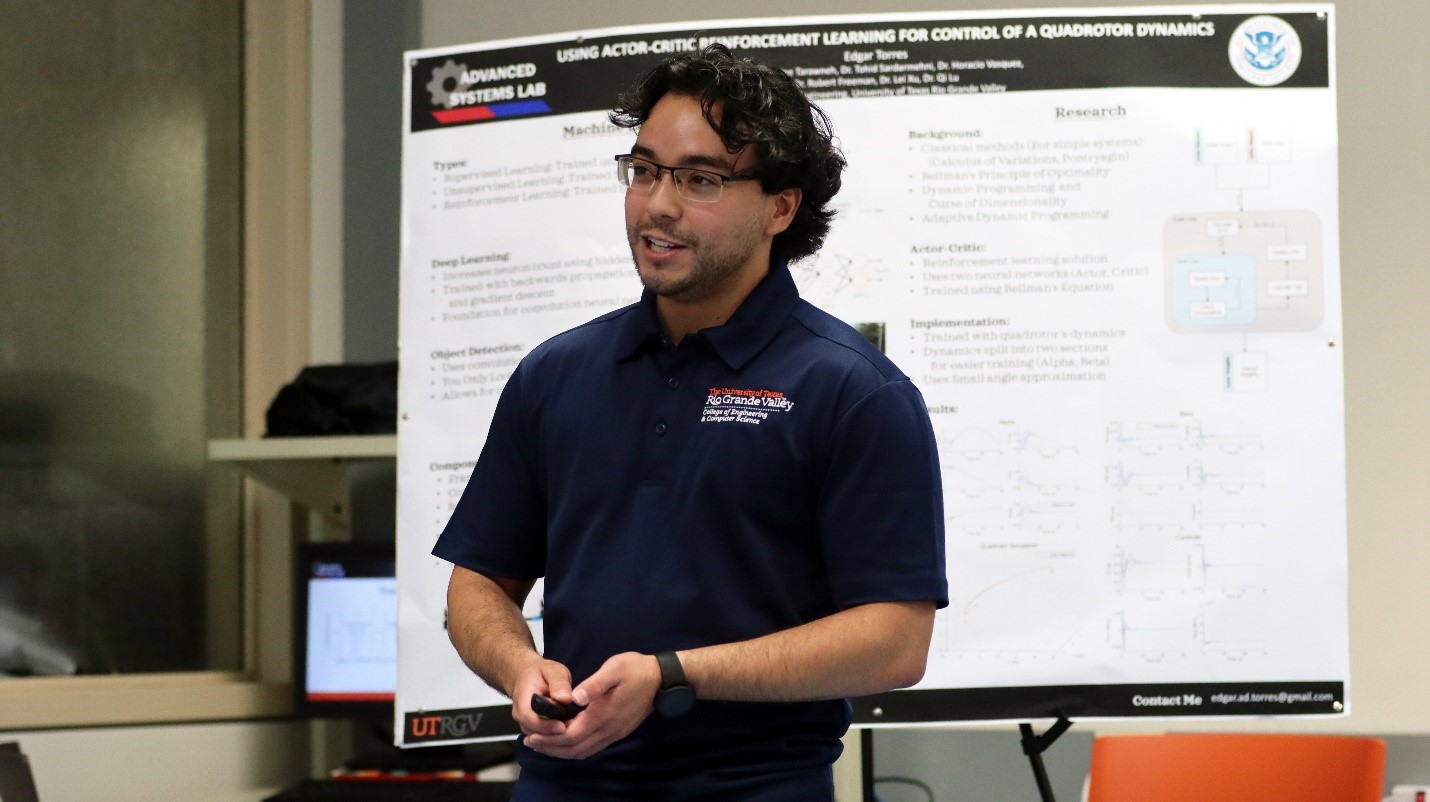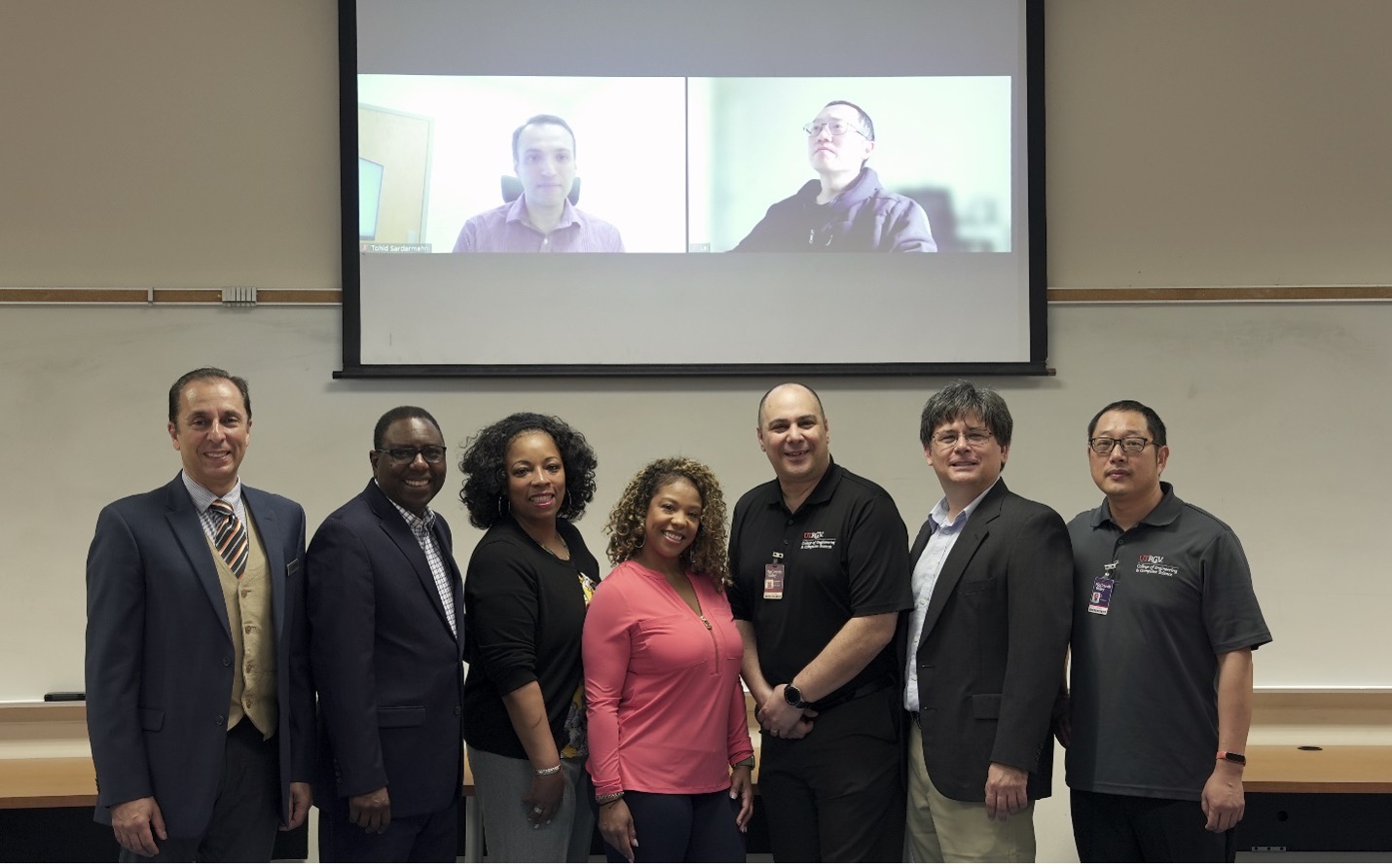By News and Internal Communications
RIO GRANDE VALLEY TEXAS – JUNE 1, 2023 – Funding opportunities, paid internships, and UTRGV-led project updates were among the topics of discussion during a recent university visit with Department of Homeland Security (DHS) Science and Technology officials.
DHS officials met with faculty, students, and researchers during the visit, which highlighted the progress of DUST: An Ultra-large Scale Miniature UV (unmanned vehicles)-based AI Platform for Border Protection, a UTRGV project. DUST is funded by a $464,511 DHS Science and Technology Directorate (SLA) Scientific Leadership Award.
“With this visit to UTRGV, I see great opportunities in the area of machine learning, artificial intelligence and cyber security through our grants programs and paid internship programs,” said Gregory Simmons, program manager for Office of University Programs, Department of Homeland Security S&T Directorate.
The project directed by Dr. Emmett Tomai, professor and chair of computer science at UTRGV's College of Engineering and Computer Science, seeks to develop a novel UV-based border protection system to facilitate daily border protection operations and integrate education activities with the research to increase the diversity of Homeland Security-STEM students and the Homeland Security Enterprise (HSE) workforce.
“The SLA funded project introduces our students to research that is relevant to national security,” said Dr. Constantine Tarawneh, senior associate dean for Research and Graduate Programs in the UTRGV College of Engineering and Computer Science. “Using unmanned aerial vehicles (UAVs) to detect threats to our borders is of great importance and students get to program and control UAVs to perform specific tasks.”
Tarawneh explained the programming involves complex machine learning and artificial intelligence modeling that presents UTRGV students with a new field to explore.
During the showcase, DHS leaders expressed their willingness to engage with UTRGV students.
Simmons said one of the main goals of the DHS Office of University Programs is to provide access and opportunity for first-generation students to connect with the varied research and development efforts within the Department of Homeland Security.
“That is our key and our purpose. That is what our grants are for, to support the university for curriculum development, to build research capacity and to provide homeland security related student internships,” Simmons said.
The grant was awarded in March 2021 and will be valid through September 2023.
BEST PART OF THE VISIT
During the visit, Diego Cantú, an undergraduate Mechanical Engineering student, and three graduate Mechanical Engineering students – Edgar A. Torres, Alberto Velázquez and Eric Rodríguez – presented their research posters to DHS officials, providing an opportunity to highlight the diverse range of research being conducted at UTRGV and display their work and project progress.
“The best part of the visit were the student presentations where the students were able to highlight the excellent research they have been performing under this grant,” Tarawneh said. “Students were also able to showcase their skill sets and newly acquired knowledge in machine learning and AI modeling-based control of UAVs.”
The visit concluded with a tour of the Multiple Autonomous Robot Systems (MARS) research lab and the Center for Multidisciplinary Research Excellence in Cyber-Physical Infrastructure Systems (MECIS), demonstrating the institution's state-of-the-art equipment and resources.
The April 19 visit to Edinburg is part of UTRGV's ongoing efforts to establish stakeholder partnerships to expand UTRGV’s Research and Development (R&D) portfolio, enrich student experience through experiential learning, and create opportunities for students through workforce development.
"It is essential to build a sustainable infrastructure that enables R&D work related to the federally targeted areas so that we can accelerate toward our destination of becoming a research university," said Dr. Can (John) Saygin, senior vice president for Research and dean of the Graduate College.
ABOUT UTRGV
The University of Texas Rio Grande Valley (UTRGV) was created by the Texas Legislature in 2013 as the first major public university of the 21st century in Texas. This transformative initiative provided the opportunity to expand educational opportunities in the Rio Grande Valley, including a new School of Medicine and a School of Podiatry, and made it possible for residents of the region to benefit from the Permanent University Fund – a public endowment contributing support to the University of Texas System and other institutions.
UTRGV has campuses and off-campus research and teaching sites throughout the Rio Grande Valley including Brownsville (formerly The University of Texas at Brownsville campus), Edinburg (formerly The University of Texas-Pan American campus), Harlingen, Weslaco, McAllen, Port Isabel, Rio Grande City and South Padre Island. UTRGV, a comprehensive academic institution, enrolled its first class in the fall of 2015; the School of Medicine welcomed its first class in the summer of 2016, and the School of Podiatric Medicine in the fall of 2022.



